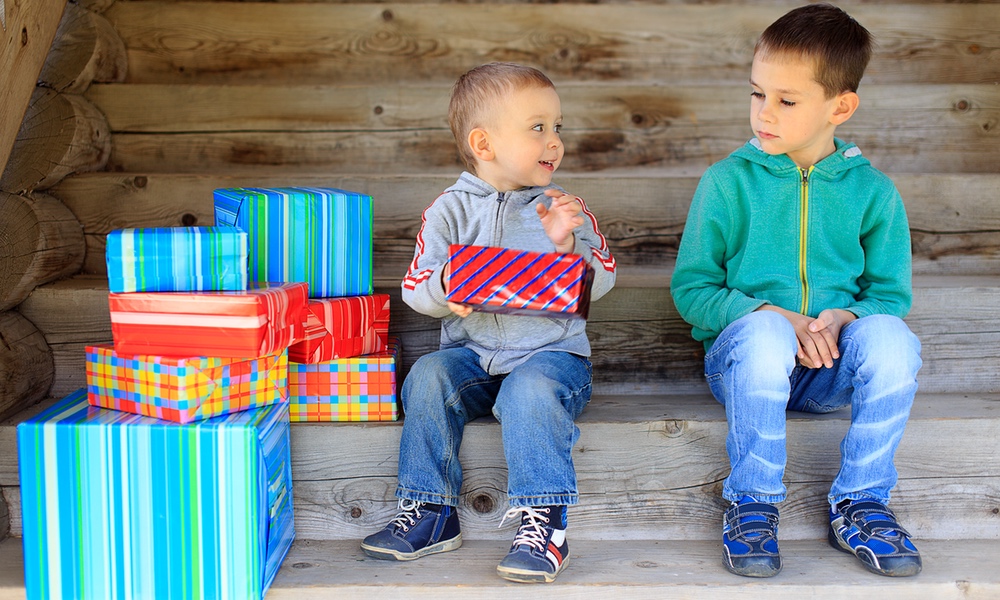If you grew up with brothers and sisters, your parents probably assured you and your siblings that everybody was loved the same amount. New research shows that's probably not true. In most cases, there's a favored child and it's usually the daughter. What's more, how you're treated has an impact on your childhood — and beyond.
The study examined the connection between children's characteristics and differences, and the way their parents treat them. “For decades, researchers have known that differential treatment from parents can have lasting consequences for children,” lead author Alexander Jensen, an associate professor at Brigham Young University, said in a press release. “This study helps us understand which children are more likely to be on the receiving end of favoritism, which can be both positive and negative.”
To pinpoint which characteristics garnered an offspring's favor, Jensen and co-author Mckell A. Jorgensen-Wells, from the Department of Social Personality and Developmental Psychology at Western University in Ontario, Canada, did a meta-analysis of 30 peer-reviewed journal articles and dissertations/theses, as well as 14 databases.Siblings who received less favorable treatment tended to have poorer mental health and more strained family relationships.
Parental favoritism was measured by considering the following five domains: 1) overall treatment of the child; 2) positive interactions; 3) negative interactions; 4) resource allocation; and 5) control.
There were some surprises in their findings. For instance, the study's authors noted that while Americans tend to prize openness and extraversion, these traits seemed to have minimal effect on the parent's regard.
In addition, even though the researchers initially thought mothers would favor daughters and fathers would favor their sons, this proved to be incorrect. Daughters won out with both moms and dads. It could be because, as the study reported, parents appreciate kids who are more conscientious, organized and responsible — and this is usually girls' territory.
The researchers' findings are not only illuminating, they are also cautionary. The study showed that the siblings who received less favorable treatment tended to have poorer mental health and more strained family relationships. “Understanding these nuances can help parents and clinicians recognize potentially damaging family patterns,” Jensen said. “It is crucial to ensure all children feel loved and supported.”
It's also important to point out that the study's findings show correlation rather than causation. “However, it does highlight potential areas where parents may need to be more mindful of their interaction with children,” Jensen added.Being on the receiving end of favoritism can be both a positive and negative.
To exhibit fairness to all siblings, parents should aim to:
- Ensure that each child receives equal attention and opportunities.
- Acknowledge individual needs by actively listening to each offspring's perspective.
- Create consistent rules with equal consequences.
The study is published in Psychological Bulletin.





